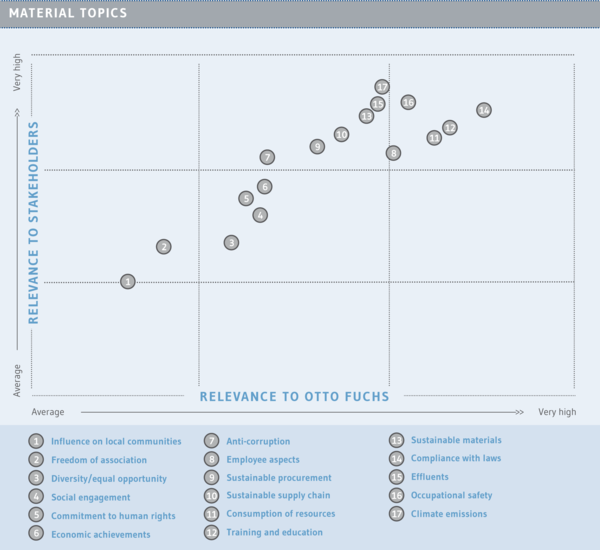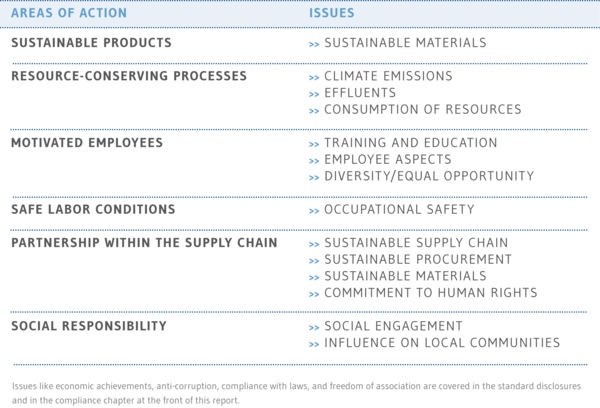The OTTO FUCHS material issues were identified in a multistage process. The first step involved an internal questionnaire being circulated in order to identify sustainability issues and develop a set of questions.
These then served as the basis for a global, anonymized online survey, which was conducted between August 21, 2017, and September 15, 2017. Of the approximately 700 stakeholders approached, more than 220 completed the survey and rated the issues that mattered to them. In the second step, the survey results were evaluated, analyzed in an internal workshop, and put into a materiality matrix depicting the arrangement of the sustainability issues. An issue is classified as material if it is rated as relevant from the perspective of OTTO FUCHS and/or our external stakeholders. The majority of the issues considered were rated as relevant or highly relevant. The analysis did not identify any pronounced preference for internal issues. The stakeholders surveyed attached particular importance to production-based – and therefore directly environmental – aspects like climate emissions, effluents, sustainable materials, a sustainable supply chain, and the consumption of resources. To arrive at a structured overview of the material issues identified, we assigned them to the following areas of action: sustainable products, resource-conserving processes, motivated employees, safe labor conditions, partnership within the supply chain, and social responsibility. The corresponding chapters of this publication outline our management approach with regard to these issues and report on the targets, selected measures, and the results thus far.


